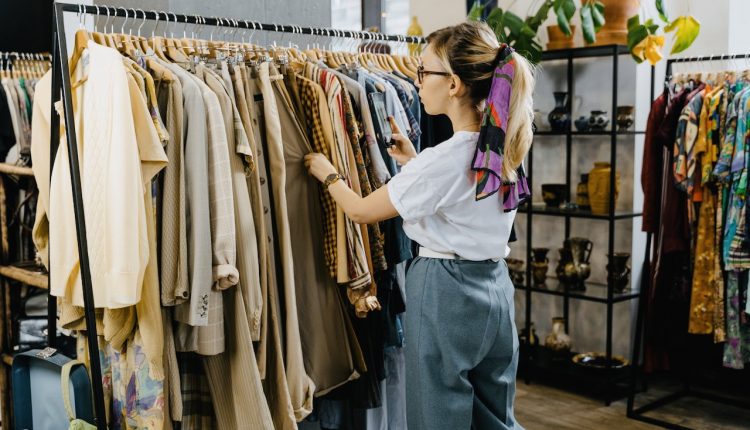Mersey firm that deals with the ‘fast fashion’ fallout
So-called ‘fast fashion’ – clothes quickly bought and discarded – is a growing environmental problem but three Merseyside brothers are on the case. Tony McDonough reports
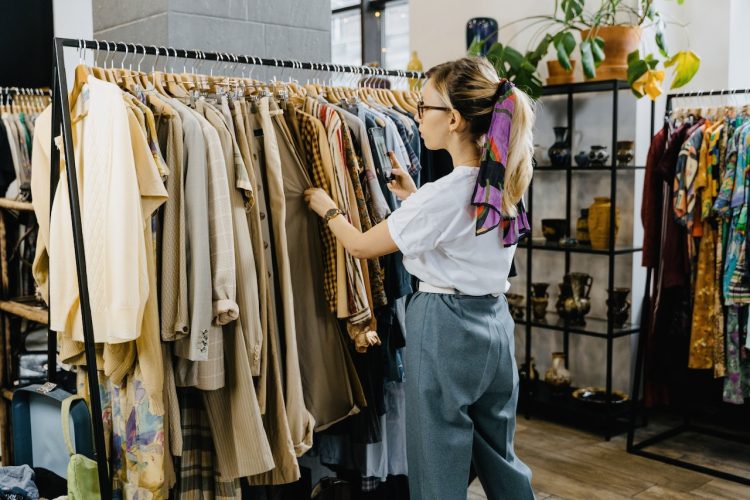
In an age where we are all supposed to be more environmentally aware, the rise of so-called ‘fast fashion’ – clothes bought and thrown away quickly – is a growing problem.
High street discount fashion chains, along with fast-emerging ecommerce retailers, have helped to make clothes cheaper and easier to get. And ‘must-have’ fashions are now relentlessly promoted on multiple social media channels such as Instagram.
However, three brothers in Knowsley are on a mission to ensure as many discarded clothes items as possible are recycled, rather than ending up in landfill. They are also adding their voices to the calls for us to simply buy fewer clothes.
Roberts Recycling was established in 2009 by brothers Simon and John Roberts. Older brother Paul joined the business later on. It was an offshoot of a Kirkby-based family firm called Oldham Brothers.
Moment of inspiration
Founded in 1946, Oldham Brothers specialised in demolition, scrap metal and skip hire. And, it was while working for the company, that Simon had a moment of inspiration.
He told LBN: “We were working in the waste recycling part of the business and we noticed people were coming in with clothing. House clearance companies were also looking to get rid of textiles so we knew there was a market for it.
“So we started diverting it from the landfill waste stream for reuse. At the time we were just selling the clothes domestically. However, as the business grew and we made more contacts, we got into the export market.
“That was initially Eastern Europe and more recently we have expanded into the Middle East.”
Roberts Recycling was initially based in Kirkby but as the venture grew rapidly it acquired new premises in Huyton. It now operates from three warehouses on the site totalling 25,000 sq ft. It has a second site in Newport and overall employs around 25 people.
It collects unwanted clothes and textiles via household collections, clothing banks (seen increasingly in public car parks) and from charity shops. More recently it has branched out into working with big fashion chains.
“We are working with UK fashion brands to help them divert their clothes waste away from landfill,” said Simon. “This is their customer returns, their damaged products, samples, overstocks. Export has now become a major part of our business.
“All the clothes go abroad and about 75% goes to Eastern Europe and around 25% to other areas such as the UAE. Last couple of years have been really busy for us.”
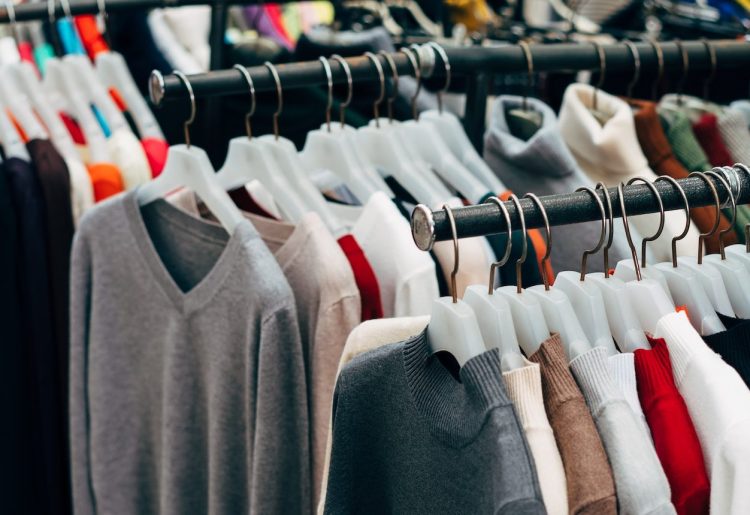
Support for charities
This has been good news for Roberts as a business and also for the charities it supports. It raises more than £500,000 every year for charities including Alder Hey, the Alzheimer’s Society, North West Cancer Research, Claire House and First Step.
“There is a long list of charities we work with and we are really proud of that,” added Simon. “And it is a win-win because they will get a rebate for what we collect and it is also diverting those textiles from landfill.”
And the company also started a service called Collect My Clothes two years ago. The recycled clothing market has become a bit of a Wild West. In 2018 The Fundraising Regulator and Local Government Association warned of bogus collectors.
They will take recycled clothing from households on the promise of sending it to be recycled and raising money for charities. Too often they do neither. Even legitimate operators will put unwanted and unsolicited plastic bags through letterboxes.
Simon explained how Collect My Clothes works: “The idea was a more softer approach. Rather than us posting bags through the letterbox people can go online when they have stuff ready and book in for old clothes to be collected.
“They have to have a minimum of four bags. We add the collection to our route. If it is in the North West we will do the pick-up in our electric van.
“The beauty of it is there is a list of charities on the website and people can choose which ones will benefit from the sale of the clothes. We have gone national with that, partnering with other collectors.”
Outstanding growth
From its Knowsley and Newport sites Roberts Recycling is now sending, on average, a mammoth 180 tonnes of clothing overseas every week. And more growth is anticipated over the next few years.
The firm’s efforts have seen it win multiple awards and accolades. In 2019 and 2022 it was the recipient of a Queen’s Award for Export for its “outstanding growth in international trade”.
This led to two what Simon described as “amazing” trips to Buckingham Palace where he met the then Prince Charles and, on the second occasion, Princess Anne. In 2020 Roberts was a finalist in the National Recycling Awards and, in the last few months, has scooped the Zero Carbon Award at Knowsley Business Awards.
Simon and the team are scrupulous in making sure the textiles they do send overseas really don’t end up in landfill. He said: “On average, around 90% of the clothes we export overseas are reused as garments.
“Anyone we sell to we do our due diligence on, and that includes regular visits. We want to ensure nothing goes to landfill.
“That 10 to 12% that isn’t directly reused can be repurposed. We have a Ukrainian customer that can turn the garments into wiping cloths. He also makes gloves out of denim and shreds some to make carpet underlays or insulation.
“We don’t sort here at the moment but we are looking to change that. We get uniforms with logos that we can’t obviously sell on as a wearable product. So we may set up our own operation to convert them into wiping cloths.
“The idea is that we make that here in the UK and sell it to local trades.”
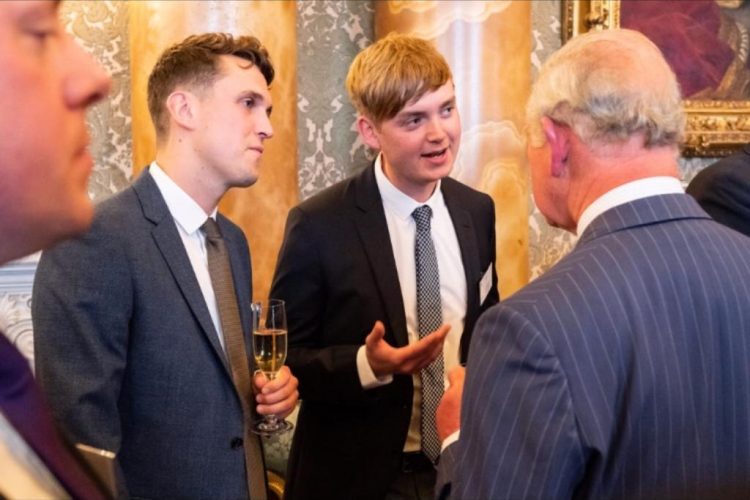
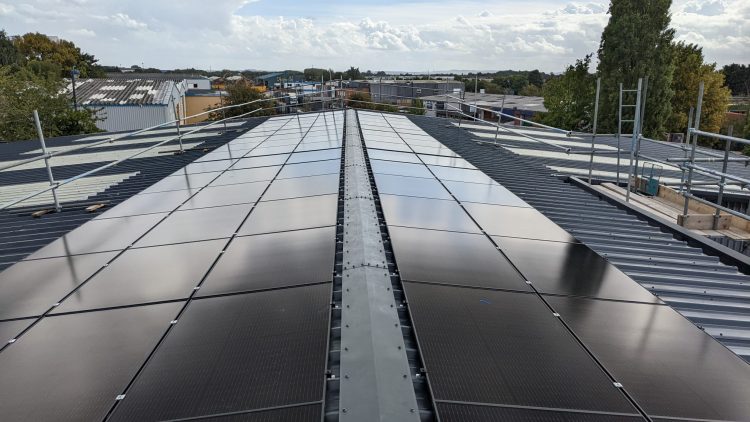
Apart from its core recycling operation, Roberts is working in other areas to enhance its ESG (environmental, social and governance) credentials.
Its newest warehouse, which totals 15,000 sq ft, has solar panels on the roof. The power generated by the panels is used to charge up the company’s electric forklift truck and electric van, which collects clothes across the North West.
And Simon also talked about a small oasis of nature they have created on their Huyton premises: “At the back of the warehouse we have also created what we have called ‘the secret garden’.
“It was a bit of wasteland. The previous occupier worked with chemicals so it wasn’t the most attractive of spaces. We thought ‘let’s turn it into a space we can be proud of’. We had a landscaper come in and we turned it into an eco-garden.
“We now have two beehives there. My uncle removes beehives for people in his spare time. A lot of the time they are still active so he rehouses the bees on our site. It is a garden where staff and visitors can sit.
“Adam Bresnan, a talented artist who has created amazing murals in New Brighton and the Baltic Triangle, has painted a mural on the wall with flowers and blue skies and bees. It is just a lovely space and we are so proud of it.”
Wider message
As well as growing the business Simon and the team are acutely aware of their wider responsibilities in regards to the way we make and buy textiles. Difficult as it may be, the fast fashion culture must be tackled, he added.
“We also need to encourage brands to make more garments out of single fibres rather than mixed. That will make them far easier to recycle. We can install machines that can sort that,” said Simon.
READ MORE: Developer submits plans for £75m Knowsley logistics facility
READ MORE: Merseyside nutrition brands set for £2m sales
“Textiles waste is a big problem. Landfill sites are still filling up fast with discarded clothing. There is not enough in place to tackle that.
“It is up to companies such as ourselves, along with brands and the wider public, to change how we buy and use fashion. Sending the clothes for reuse is so much better – it extends the product’s life.
“It can maybe reduce the demand for the volume of new clothes. It is a tough one to tackle because of the way fashion is promoted and marketed through social media.
“In the next 10 years this will become more and more of an issue. One day we will simply have to encourage the younger generation to buy fewer clothes.”

